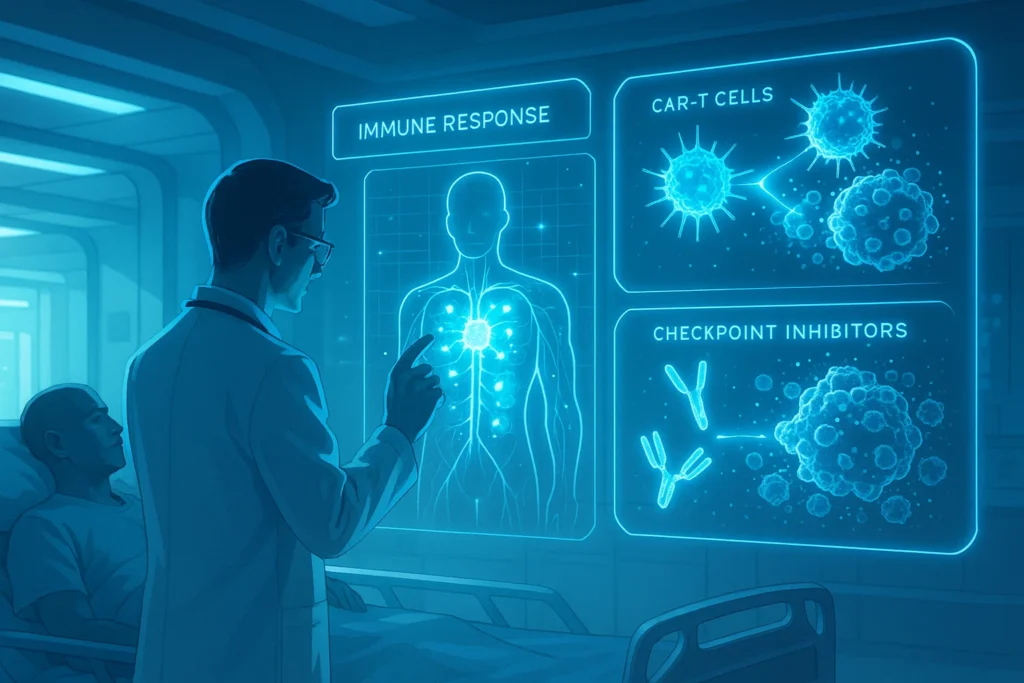Targeting cancer stem cells has emerged as a promising strategy in the fight against cancer. Recent research shows that eliminating these resistant cells could lead to longer-lasting remissions and improved treatment outcomes.
Recent health science and medical research continues to establish new understanding of illnesses together with better treatment methods in the fast-developing healthcare realm. A fresh research paper released within Medical Oncology and Research journal presents critical data with implications that might transform healthcare delivery and clinical operational approaches.
This revolutionary research study contains multiple essential points that we need to understand.
Targeting Cancer Stem Cells
Cancer stem cells (CSCs) represent a fundamental research objective in this study as they exist as a potent subgroup of cells in tumor tissue. The propagation of tumors depends on cancer stem cells together with their resistance to therapy treatments and their ability to trigger cancer recurrences. According to the study traditional treatments fail to remove CSCs so cancer cells sometimes return after patients receive successful first treatment outcomes.
Modern researchers develop exclusive therapeutic methods to eliminate cancer stem cells and their prevalence in tumors. Such treatments show promise to produce longer-lasting remissions and ultimately increase cure success in the medical field.
The Promise of Immunotherapy
Research demonstrates remarkable progress within immunotherapy which employs immune system cells of patients against cancer cells as treatment approach. The use of checkpoint inhibitors and CAR-T cell therapy approaches brings significant success for particular cancer treatments. Additionally the research identifies that patient responses to these treatments vary greatly so scientists must pursue improvements for wider cancer therapy effectiveness.
The top medical development involves customizing immune treatment methods which integrate concurrent therapies.
Importance of Early Detection and Biomarkers
Doctors face significant obstacles with identifying diseases early in the field of oncology. The paper details how biomarkers serve as body-generated measurable signs which indicate disease existence. Doctors would be able to diagnose cancer during its earliest stages through the identification of dependable biomarkers which provides the best chance for successful treatment.
Scientists today study three diagnostic methods using molecular signatures and genetic profiles together with blood-based testing methods.

Strategic Approaches to Target CSCs
The review highlights several promising therapeutic directions:
Pathway inhibitors: Drugs that interfere with essential CSC-supporting signals (e.g., Notch inhibitors) are being explored.
Targeted drug delivery: Nanocarriers and antibody-based systems offer a way to deliver drugs specifically to CSCs, sparing healthy cells.
Combined therapy: Pairing CSC-targeting drugs with conventional treatments may help overcome resistance and prevent relapse.
Combined, these strategies offer a multi-pronged approach to root out resilient CSCs and improve treatment durability.
Clinical Implications
Though the pace of research is picking up, CSC targeting solutions remain mostly experimental. Challenges include:
Establishing CSC specific markers that can confidently differentiate CSCs with other tumor cells.
Maintaining the safety and efficacy in human trial without causing any harm to normal tissues.
The application of adaptive strategies to individual cancer types, as they have a different behavior of CSCs.
Regardless of these challenges, knowing CSCs helps bring us a step closer to more accurate, sustainable cancer treatment as opposed to just managing the side effects of cancer.
Conclusion
The latest medical research leads both clinical staff and researchers forward with hope toward managing healthcare efficiently in the years to come. Scientists are developing better cancer treatments through their research into cancer stem cells along with immune therapy progress and novel biomarker identification and optimum therapy combinations.
Persistent challenges exist but the continuous progress in health sciences and medical research creates conditions for an upcoming era that may lead to unprecedented successful and early detection of cancer.
References:
Chu et al., Signal Transduction and Targeted Therapy (2024).
https://www.nature.com/articles/s41392-024-01938-6
ClinicalTrials.gov for ongoing trials.

